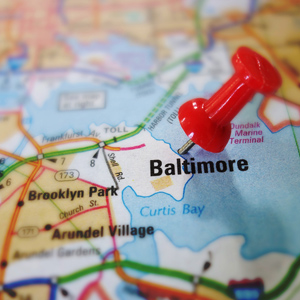Justice report cites discriminatory and unconstitutional policing in Baltimore

A legacy of zero tolerance by the Baltimore Police Department has resulted in a pattern of pedestrian stops concentrated in minority neighborhoods, often made without reasonable suspicion, as well as “matter of course” pat-downs, according to a report by the U.S. Justice Department.
“Racially disparate impact is present at every stage of BPD’s enforcement actions, from the initial decision to stop individuals on Baltimore streets to searches, arrests, and uses of force,” the report said. “These racial disparities, along with evidence suggesting intentional discrimination, erode the community trust that is critical to effective policing.” The Washington Post, the Baltimore Sun, the Wall Street Journal (sub. req.) and the New York Times have stories.
Police recorded more than 300,000 pedestrian stops, concentrated in predominantly African American neighborhoods, from 2010 to 2015, the report says. Hundreds of people, mostly African American, were stopped on at least 10 occasions by Baltimore police between 2010 and 2015, and seven black men were stopped more than 30 times during the time period.
African Americans were also disproportionately pulled over in traffic stops, the report concluded. One African American man in his mid-50s was stopped 30 times in less than four years, yet none of the stops resulted in a citation or criminal charge.
Pat downs are made without identifying grounds to believe the subject is armed and dangerous, and even when the frisks are justified, they often exceed permissible scope, according to the report. In some cases, officers “performed degrading strip searches in public” without grounds to believe there was hidden contraband.
In addition, Baltimore police use “overly aggressive tactics that unnecessarily escalate encounters, increase tensions, and lead to unnecessary force,” the report says.
The report cited discriminatory orders by supervisors, including an order the police on one shift arrest “all the black hoodies” in a neighborhood. One youth was arrested for loitering though he was standing in front of his own home.
Interviews with officers revealed an “us-versus-them mentality,” such as an officer’s statement that “You’ve got to be the baddest [expletive] out there.” Another officer spoke of pressure from supervisors. “Commanders say they want community policing,” the offier said, “but then they come back around and ask ‘How many arrests you made?’ “
Booking officers and prosecutors declined to file charges in more than 11,000 cases.
Despite the findings, “we are heartened by the support for police reform” in the department, the city and the broader community, the report said. The city has agreed to reforms in several areas, a first step toward a consent decree to change police practices.



